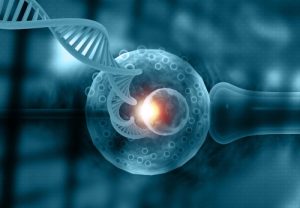Understanding the IVF timeline could play a crucial role in a couple’s conceiving a child. Therefore, it is important to consider a few factors.
IVF Overview
IVF stands for in-vitro fertilization, which is a series of procedures designed to increase a couple’s chances of successfully conceiving.
The Process
A medical professional extracts eggs from a woman’s ovaries or an egg donor and fertilizes them with sperm from the individual’s partner or sperm donor. Once fertilization is complete, the eggs are transferred into the participant’s uterus; and a period of watchful waiting occurs to determine if fetal development will ensue and if a healthy pregnancy will culminate.
The IVF Timeline
Though the IVF process seems simple, success actually hinges on the close adherence to numerous steps comprising a greater timeline lasting roughly 36 weeks. Specific steps include ovarian stimulation, egg retrieval, the egg-fertilization process, embryo growth, embryonic transfer, awaiting pregnancy confirmation and childbirth. The time needed to complete each step of the process varies widely. During each step, it is important for women and their doctors or fertility specialists to closely monitor outcomes; and decide the best methods to ensure that the process runs as smoothly as possible.
Considerations
 Among the most important issues warranting close attention during the later stages of the IVF process is the general and genetic health of the embryos created. The goal is to produce a perfect embryo that medical professionals are confident will create a healthy baby. However, certain embryos might become damaged or sustain genetic flaws. Should these unfortunate events occur, the couple in question and their fertility team might be forced to render certain difficult decisions, such as whether to continue with treatment or take the risk of trying to bring any of these embryos to term.
Among the most important issues warranting close attention during the later stages of the IVF process is the general and genetic health of the embryos created. The goal is to produce a perfect embryo that medical professionals are confident will create a healthy baby. However, certain embryos might become damaged or sustain genetic flaws. Should these unfortunate events occur, the couple in question and their fertility team might be forced to render certain difficult decisions, such as whether to continue with treatment or take the risk of trying to bring any of these embryos to term.
Success in the IVF Process
In addition to strict adherence to the preceding critical steps of the IVF process, a successful outcome might depend on numerous external factors:
The Recipient’s Age
As a general rule, the younger a woman who undergoes IVF, the better are her chances for success. Typically, individuals 35 and under have the greatest odds. While successful conception and childbirth can occur after age 35 and even 40, the percentages decrease because older women tend to possess a diminished egg quality.
Fertility-Inhibiting Illnesses
If fertility problems can be tied to any malady occurring in the woman’s reproductive tract, the chances for IVF success decline.
Previous Successes
In many instances, successful couples are those who underwent IVF treatment at a previous time and were fortunate enough to conceive and witness the birth of a child.
The Use of Donor Eggs
Individuals undergoing IVF can have donor eggs implanted. This could prove crucial for a woman over age 35, who might opt to accept the eggs of a younger woman.
Quality of the Fertility Clinic
The reputation and ability of the facility and those employed at the establishment also might play a critical role.
Individual Fertility-Boosting Efforts
Fortunately, women might increase their chances of success undergoing IVF or the prototypical conception process by engaging in optimal lifestyle habits:
Maintain a Healthy Weight
Subjects who are obese or significantly overweight limit their chances of IVF and lower their chances of conception in general, as weight can negatively affect the hormonal balance.
Quit Smoking
Research has concluded that IVF recipients who smoke require the most attempts before potential success, have the most failed attempts and must be injected with the largest quantities of hormones and other fertility-stimulating substances to stimulate egg growth and viability.
Consume a Healthy Diet
Women who ingest natural, healthier foods may increase the chances of IVF success. Physicians, nutritionists and fertility specialists stress that a recipient’s diet should consist of increased quantities of vegetables, whole grains, healthy fats and legumes. Products like sugary substances, red meat and all items containing elevated concentrations of salt, unhealthy fats, chemicals and preservatives should be limited or avoided altogether as these substances produce inflammation that could adversely impact the reproductive tract.





